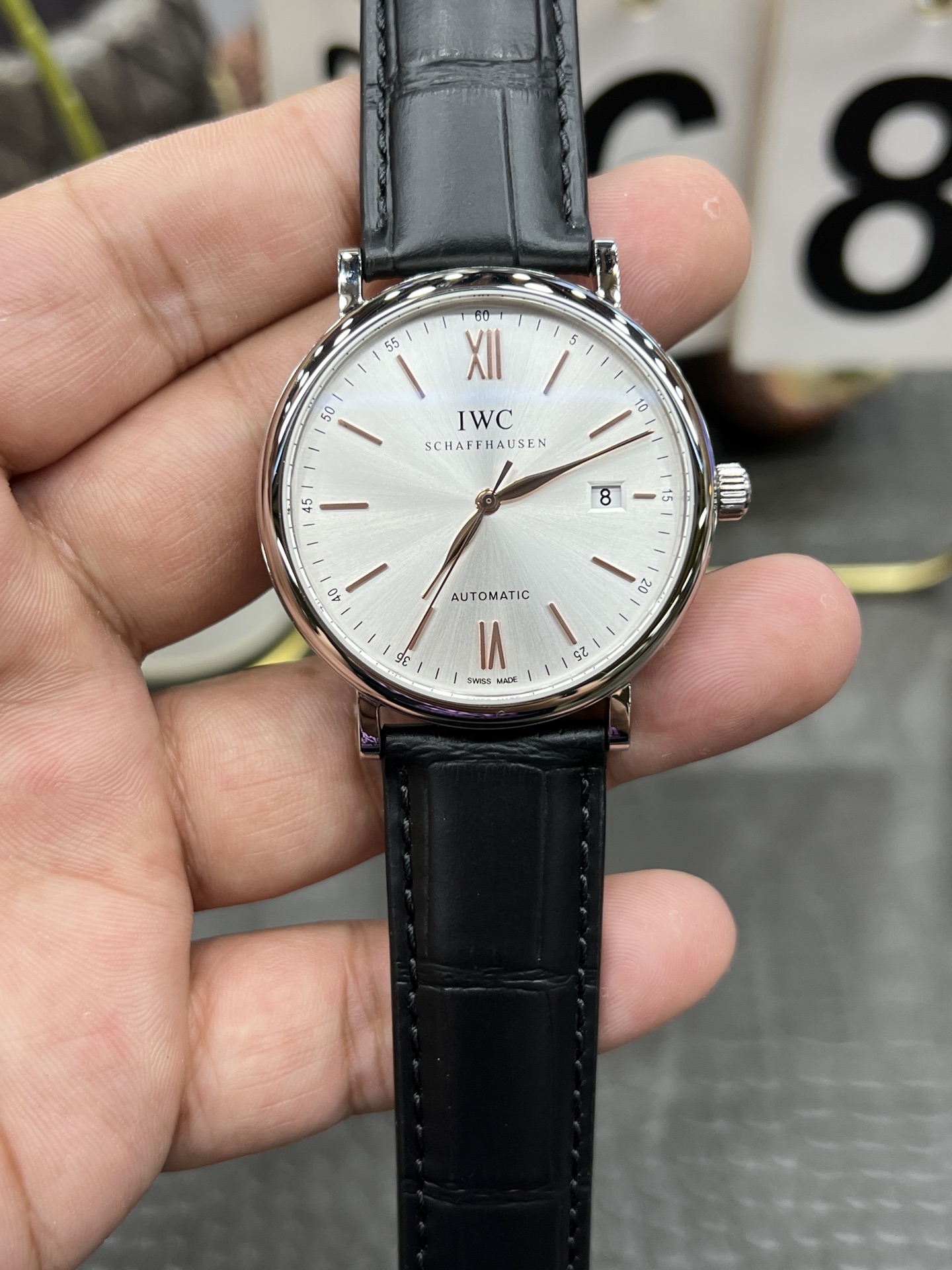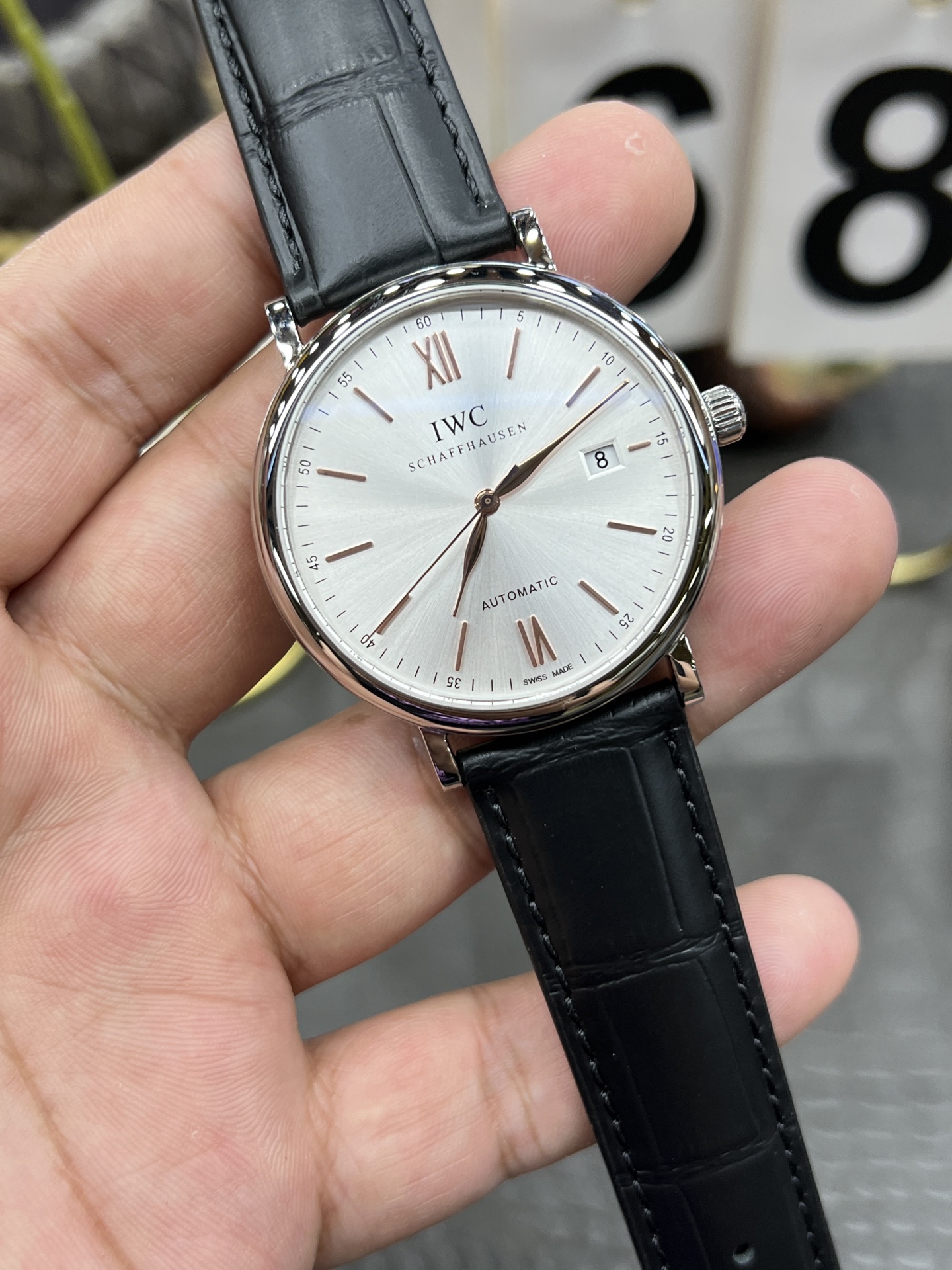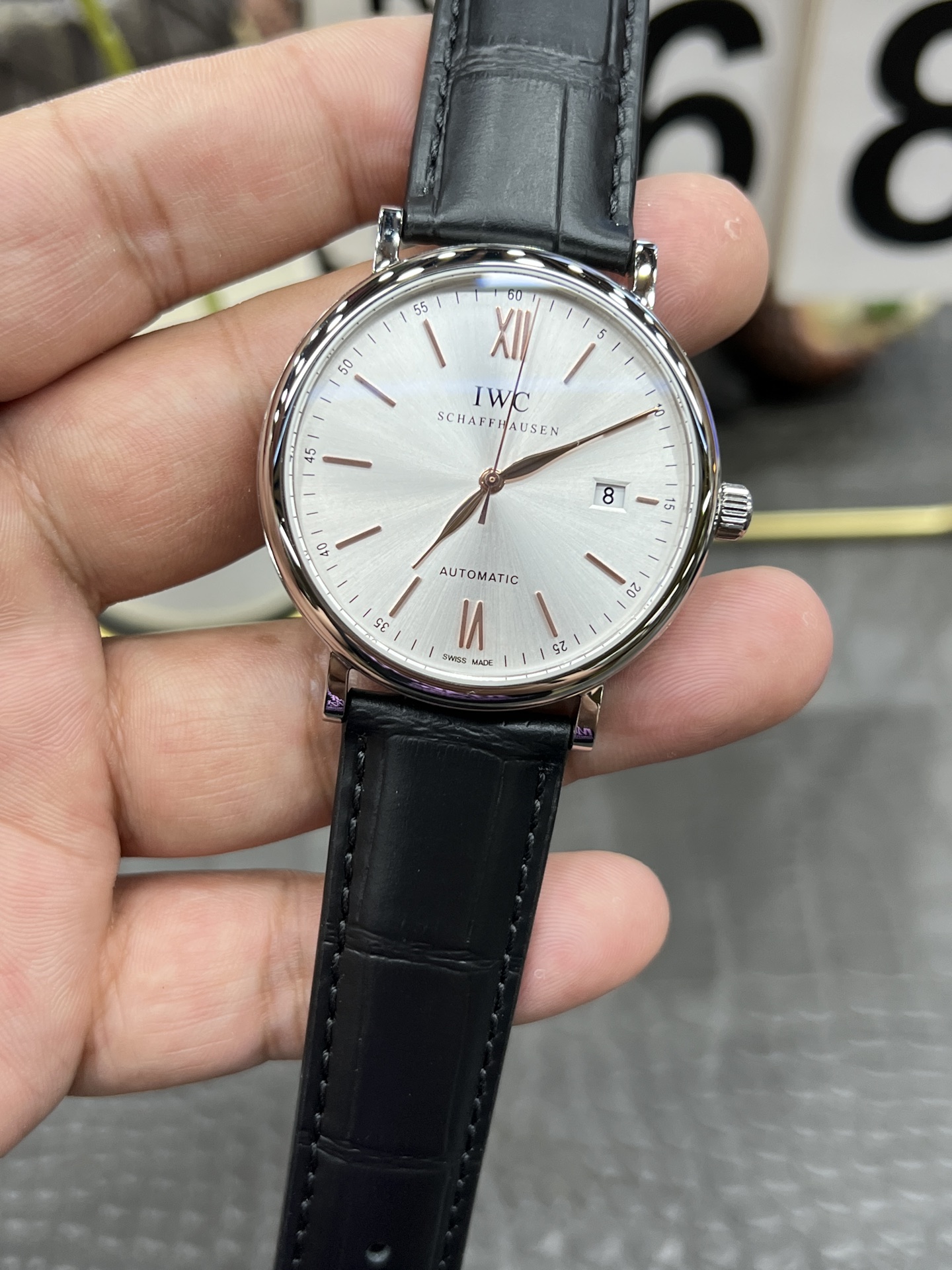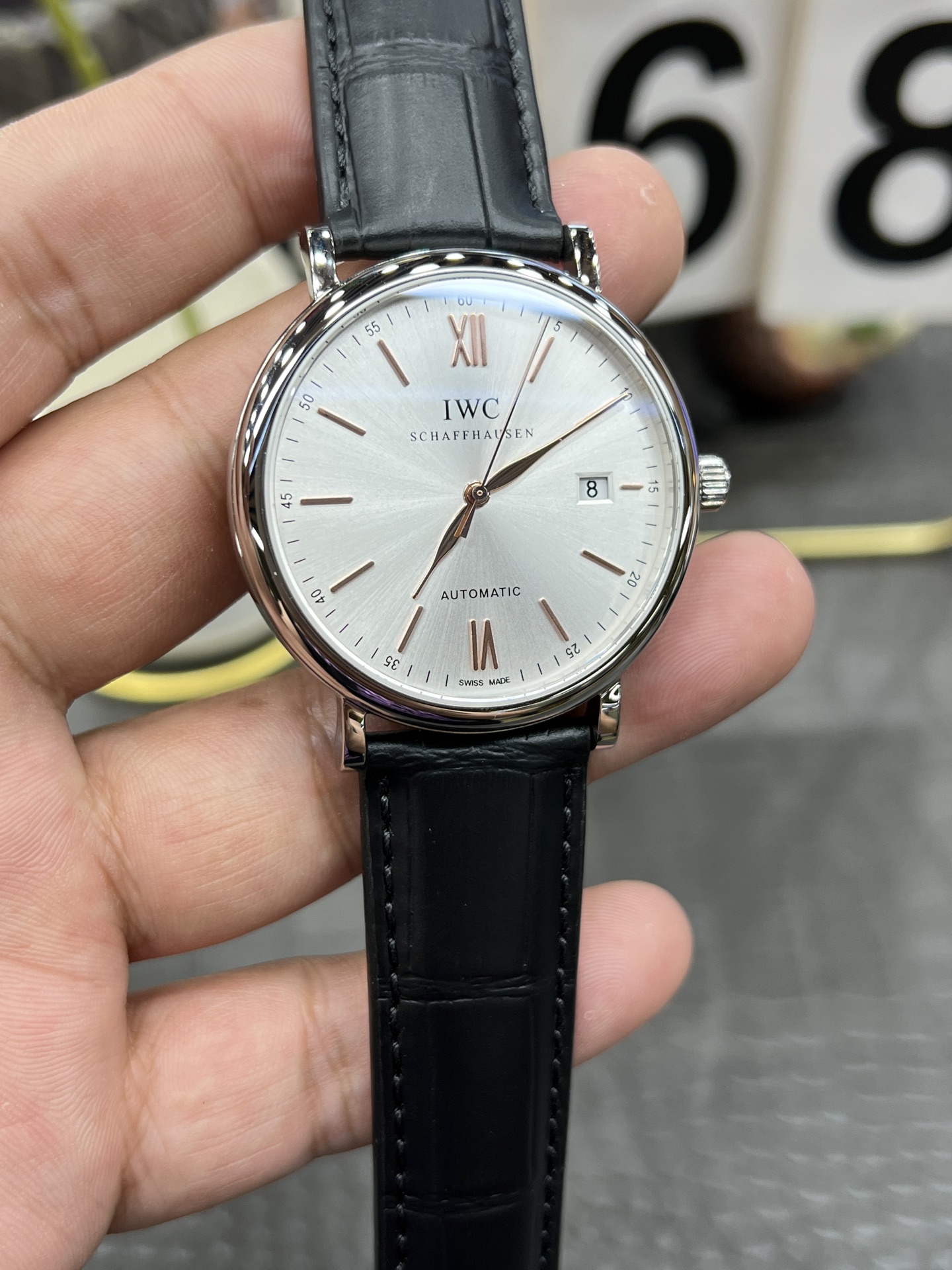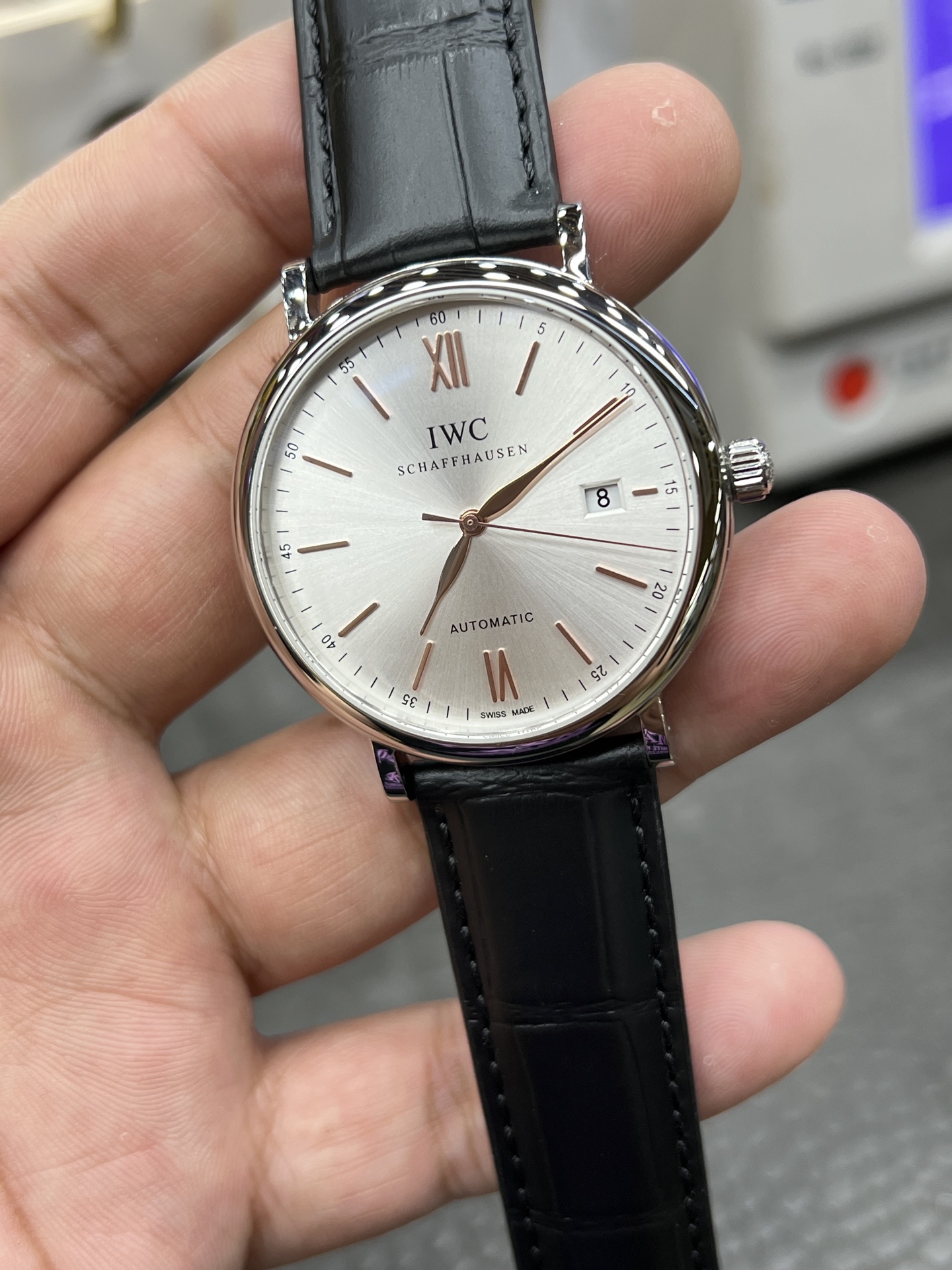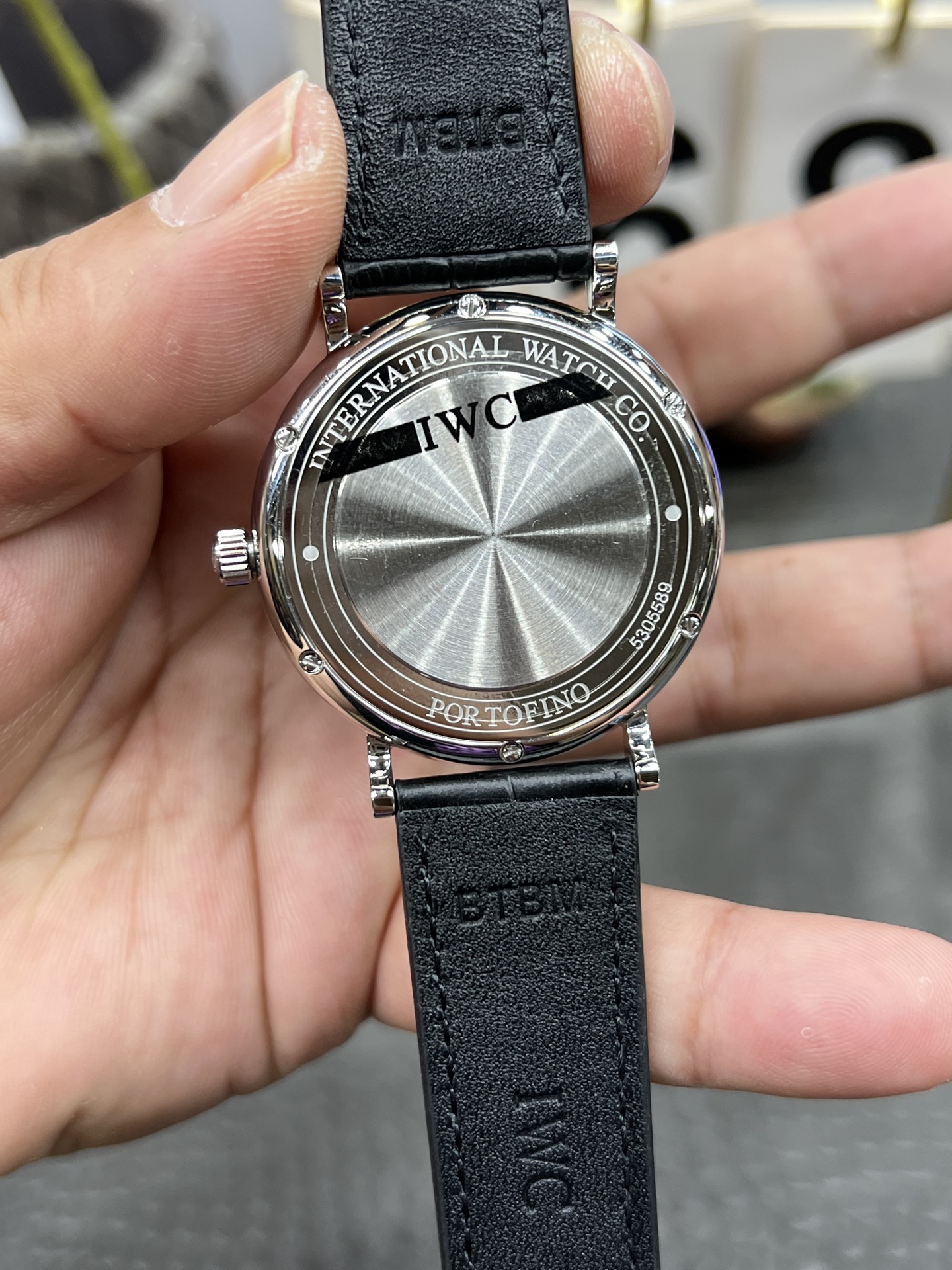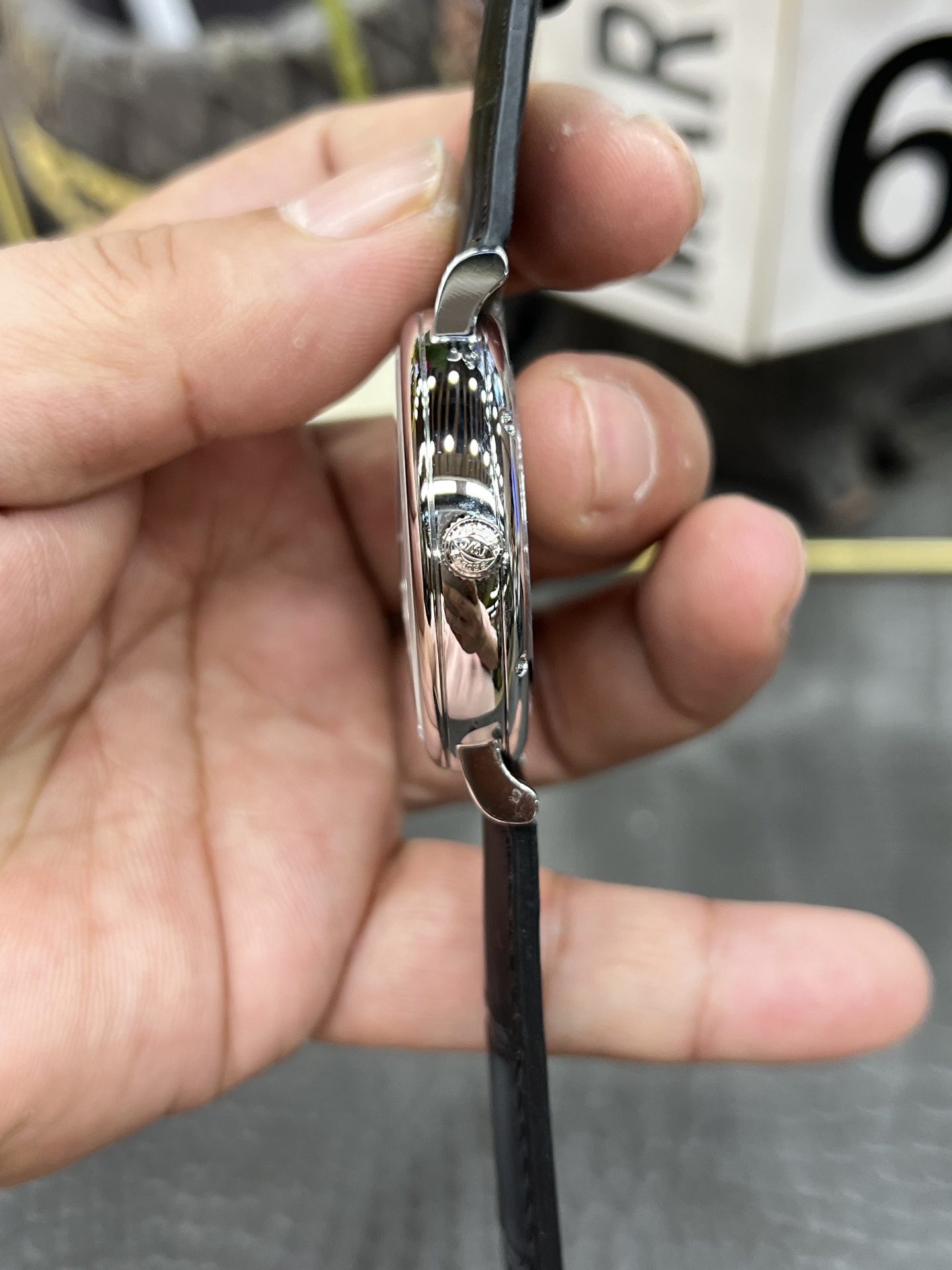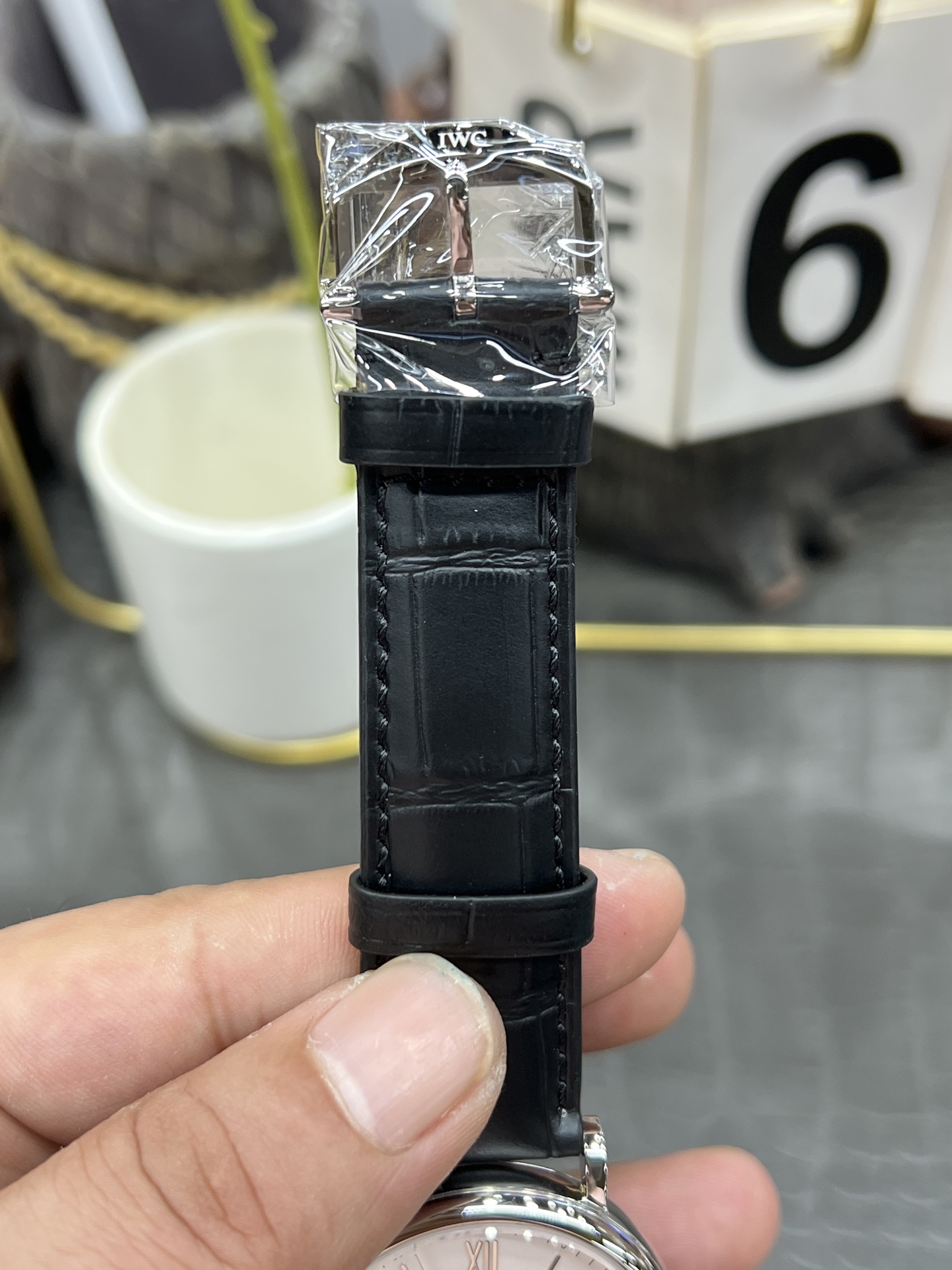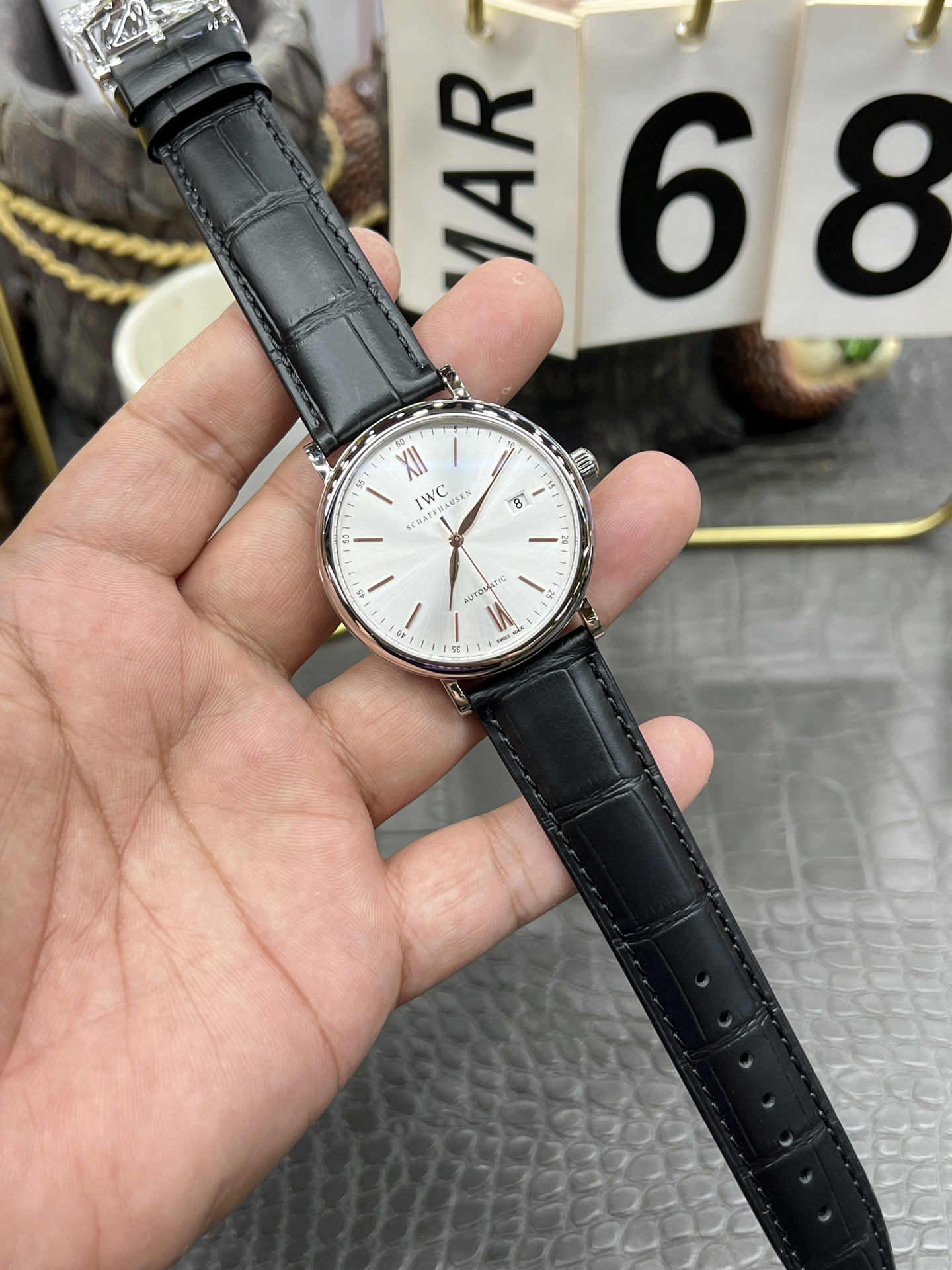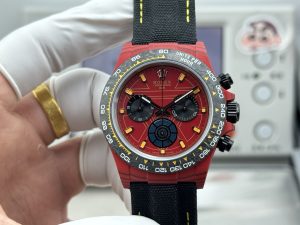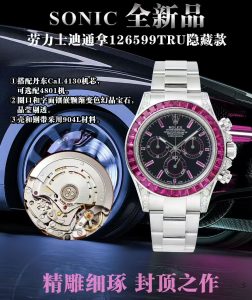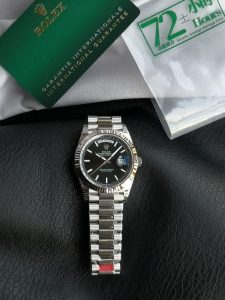The allure of luxury watches frequently lies in their perceived exclusivity and the meticulous craftsmanship they are said to embody. Among these high-end timepieces, the IWC Portofino is celebrated for its elegance, the embodiment of understated sophistication. However, in the bustling hub of Dongguan, replica watch factories challenge this exclusivity by meticulously crafting imitations that parallel the originals in appearance and functionality.
Understanding Replica Craftsmanship: The IWC Portofino Case Study
The IWC Portofino, with a 39.5mm dial, epitomizes classic design cues appreciated by enthusiasts globally. Replicas of this watch, notably from GW Dongguan’s top-grade modification factory, strive to recreate the IWC experience. These replicas utilize materials—dials, hands, glass, and date markings—that closely mimic the original specifications through a 1:1 mold process. At the heart of these replicas beats the Seagull 2824 automatic movement, an economic yet reliable alternative to proprietary Swiss calibers.
The Economic Paradox
The economics of replica watches offers a paradoxical view on luxury consumption. A genuine IWC Portofino might retail for upwards of several thousand dollars, a price justified by branding, prestige, and craftsmanship. In contrast, its replica counterpart, with minimal depreciation in visual appeal, costs a fraction. This raises critical questions about the genuine value proposition of luxury watches. Are we buying the quality, or are we purchasing the emblem of status it offers?
According to industry data, the luxury watch market showcases significant mark-ups—sometimes more than ten times the production cost. This has paved the way for replicas to provide an accessible entry point into the world of luxury aesthetics without the hefty price tag. However, while replicas offer an economic advantage, they lack the allure of authenticity, which can impact their perceived value.
Branding and the Ethical Quandary
The ethical implications surrounding replica watches are deeply intertwined with branding and intellectual property rights. IWC, like many luxury brands, invests considerably in safeguarding its designs and brand identity, as these are pivotal to its market position. Replicas, by their very nature, undermine this exclusivity, challenging both legal and ethical boundaries. While some consumers view purchasing replicas as a savvy, budget-conscious decision, others perceive it as an ethical lapse that erodes the integrity of craftsmanship.
Moreover, the replica industry operates in a grey area that occasionally supports unethical labor practices, lacking the transparency typically expected in the legitimate manufacturing sector. While not all replica factories engage in such practices, discerning the good from the bad is often challenging without clear oversight.
The Psychology Behind the Replica Market
The desire for replicas often taps into psychological and social dynamics, primarily the pursuit of social status and style at an affordable cost. The phenomenon reflects a broader disillusionment with traditional notions of luxury, where individuals demand more democratized access to high-fashion items. The ability to possess a watch that mirrors a luxury brand feeds into the narrative of self-worth built around societal perceptions of success and affluence.
Personal Value Versus Market Perception
At the heart of the replica debate is a question of personal value versus perceived market worth. For some, wearing an IWC Portofino replica may be about the personal satisfaction derived from the aesthetics and the narrative style it offers. For others, it’s about the inherent recognition and prestige associated with the brand. Thus, replicas serve a dual purpose: they satisfy a personal aesthetic desire while challenging the traditional tenets of luxury consumption.
In conclusion, while the replica industry may never fully reproduce the nuanced craft of genuine luxury watches, it undeniably questions the very foundation on which luxury brands stand. By dissecting the economic, ethical, and psychological dimensions, consumers can make more informed choices, navigating the intriguing intersection of value, authenticity, and personal satisfaction.
